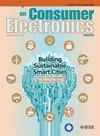A Two-Phase Client Selection Strategy for Cost-Optimal Federated Learning in Traffic Flow Prediction
IF 10.9
2区 计算机科学
Q1 ENGINEERING, ELECTRICAL & ELECTRONIC
引用次数: 0
Abstract
Federated learning has shown its great applicability in intelligent transportation systems, where prediction models can be trained across regions or cities without leaking raw data. However, current federated learning approaches often ignore energy consumption, while energy consumption is playing a pivotal role in sustainability of transportation systems. In this paper, we propose a Two-Phase Client Selection strategy for federated learning (FedTPCS) in traffic flow prediction, aiming to minimize the total energy consumption of clients for participation while considering device and data heterogeneity. First, to tackle device heterogeneity, we leverage K-means clustering to group clients based on their computing power and geographic distance. We strategically select the clustered group with the lowest average cost that is the combination of energy consumption and latency. Second, to tackle data heterogeneity, we leverage affinity propagation clustering based on cosine similarity of model update vectors to divide the selected clients into several subgroups of similar clients. We evaluate the performance of the proposed FedTPCS algorithm on two public datasets. Compared to FedAvg, FedAEB and Greedy algorithms, the FedTPCS algorithm reduces cost by up to 56%, 30%, and 20% under the PeMS dataset, and 50%, 28%, and 18% under the Highways England dataset, respectively.交通流预测中成本最优联邦学习的两阶段客户端选择策略
联邦学习已经在智能交通系统中显示出了巨大的适用性,在智能交通系统中,预测模型可以在不泄露原始数据的情况下跨区域或城市进行训练。然而,目前的联邦学习方法往往忽略了能源消耗,而能源消耗在交通系统的可持续性中起着关键作用。在本文中,我们提出了一种用于交通流预测的联邦学习(FedTPCS)两阶段客户端选择策略,旨在最大限度地减少客户端参与的总能耗,同时考虑设备和数据的异质性。首先,为了解决设备异构问题,我们利用K-means聚类根据计算能力和地理距离对客户端进行分组。我们策略性地选择具有最低平均成本(即能量消耗和延迟的组合)的集群组。其次,为了解决数据异质性问题,我们利用基于模型更新向量余弦相似性的亲和传播聚类,将选择的客户端划分为相似客户端的几个子组。我们在两个公共数据集上评估了所提出的FedTPCS算法的性能。与fedag、FedAEB和Greedy算法相比,FedTPCS算法在PeMS数据集下的成本分别降低了56%、30%和20%,在Highways England数据集下的成本分别降低了50%、28%和18%。
本文章由计算机程序翻译,如有差异,请以英文原文为准。
求助全文
约1分钟内获得全文
求助全文
来源期刊
CiteScore
7.70
自引率
9.30%
发文量
59
审稿时长
3.3 months
期刊介绍:
The main focus for the IEEE Transactions on Consumer Electronics is the engineering and research aspects of the theory, design, construction, manufacture or end use of mass market electronics, systems, software and services for consumers.

 求助内容:
求助内容: 应助结果提醒方式:
应助结果提醒方式:


